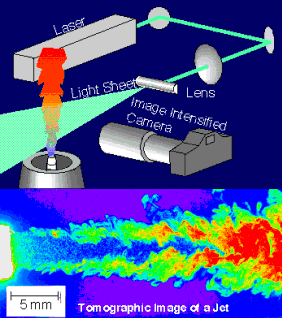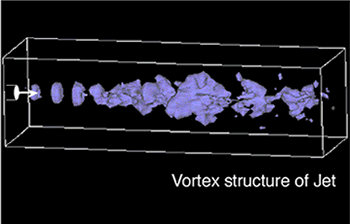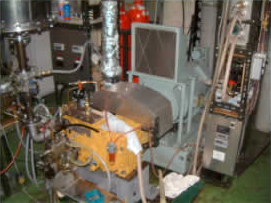Optimum Design and Control of Energy Conversion Systems
In various combustion systems including heat engines, chemical energy contained in fuels is converted into thermal energy through combustion. To improve the conversion efficiencies and suppress the environmental impacts, it is required to elucidate the fundamental mechanisms of fuel-air mixing and combustion. In our lab, fundamental studies are performed on steady and transient flames by means of visualization, laser diagnostics and numerical analysis. Furthermore, to utilize future fuels such as hydrogen, research is carried out on the basic combustion characteristics and the application to engines.

Numerical analysis for fluid motion and combustion in a jet flame
Air entrainment and turbulent mixing are important processes for a jet flame. Also, turbulence structure in a flame jet is totally different from that in a cold jet, because of the high temperature due to combustion around shear layer. Here, large eddy simulation (LES) and probability-density-function (PDF) models are performed to clarify fluid motion, turbulence characteristics and reaction in a jet flame.

Utilization of hydrogen in engines
Hydrogen has potential to realize highly efficient and CO2-free combustion when utilizing in an engine. However, control of backfire, knock and cooling heat loss is required to ensure engine durability and wide-range operation. To reach to this goal, experimental and theoretical investigations are carried out on knock characteristics, utilization of hydrogen with natural gas and combustion control for direct injection using a test engine, a combustion simulator and chemical reaction kinetics.




